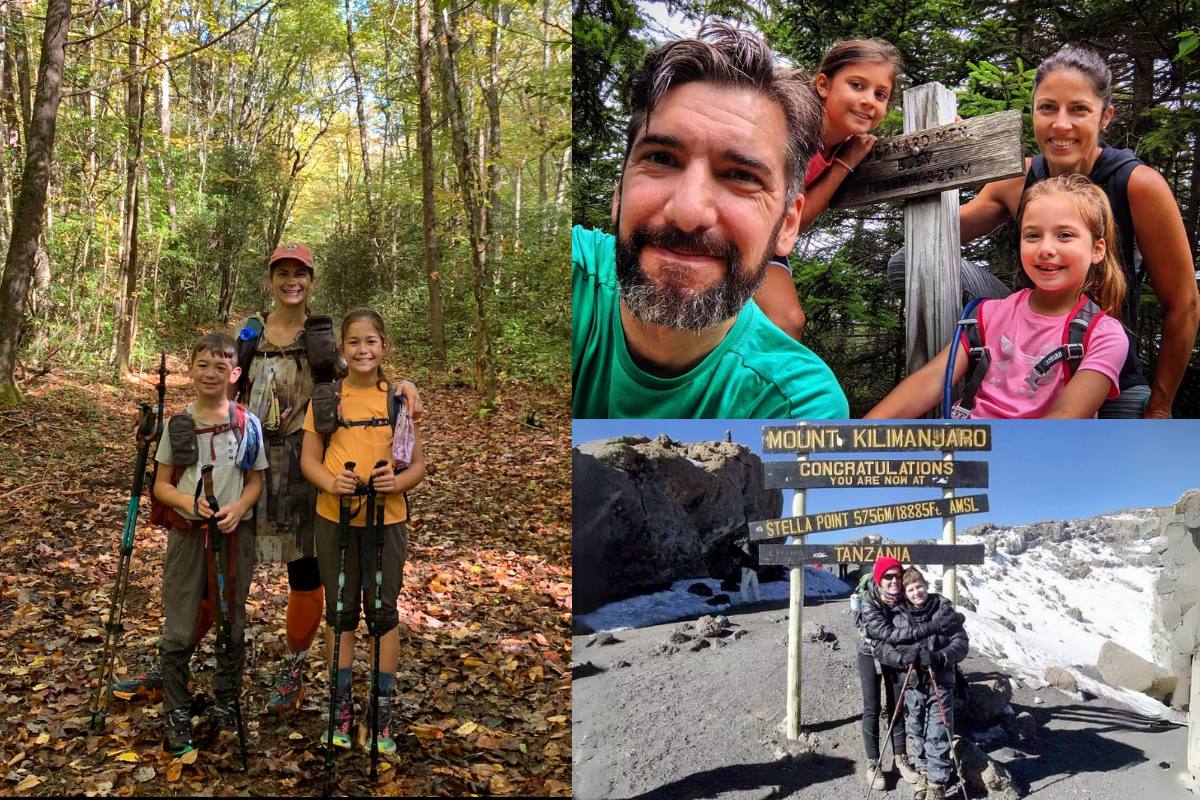

Sarah Kingdom took her first son up Kilimanjaro when he was 10 years old. David Blanchard hiked the trails of Acadia National Park with his wife and two young daughters. And Jennifer Stoneking-Stewart’s two kids, ages nine and 10, recently joined the Great Smoky Mountains 900 Miler Club. This may sound wild to parents with young kids (don’t forget the wildest of them all, the single mom who thru-hiked the Appalachian Trail with her 13 children), and that’s because it is wild. Clearly, though, it’s also possible, and the rewards for these parents’ efforts have been great.
Videos by Outdoors with Bear Grylls
Outdoor adventures have the power to shape individuals and families, often laying the foundation for a lifelong bond among people who experience these adventures together. Here’s a peek into how these incredible parents tackled big adventures with their young kids, plus their tips for how other parents and families can do the same.
Summiting Peaks, Strengthening Bonds
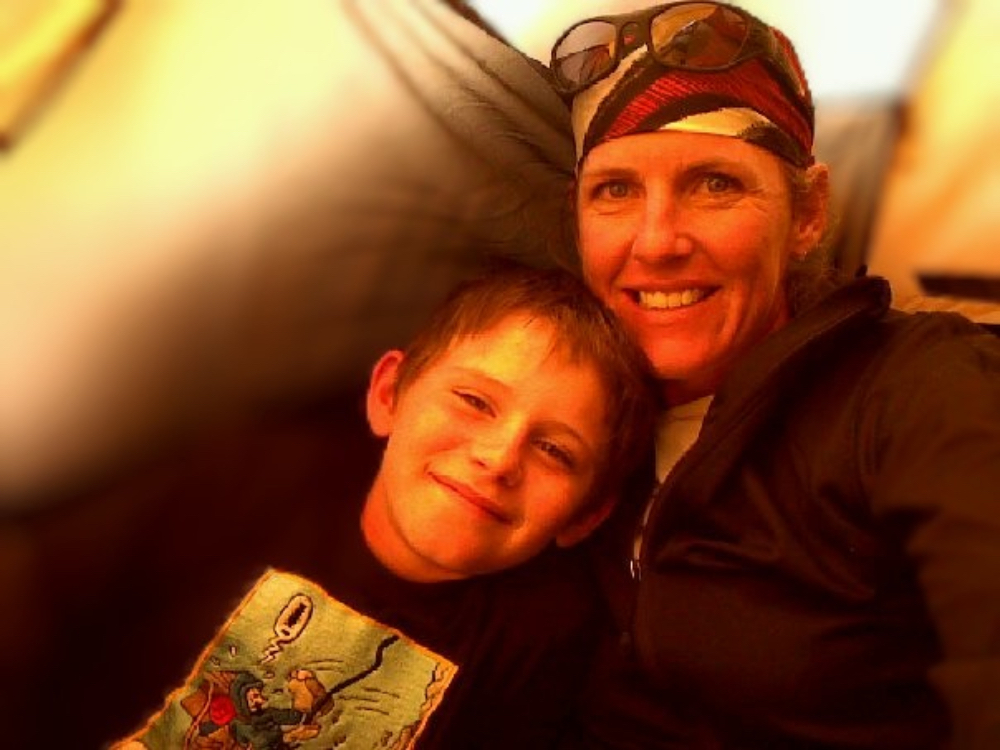
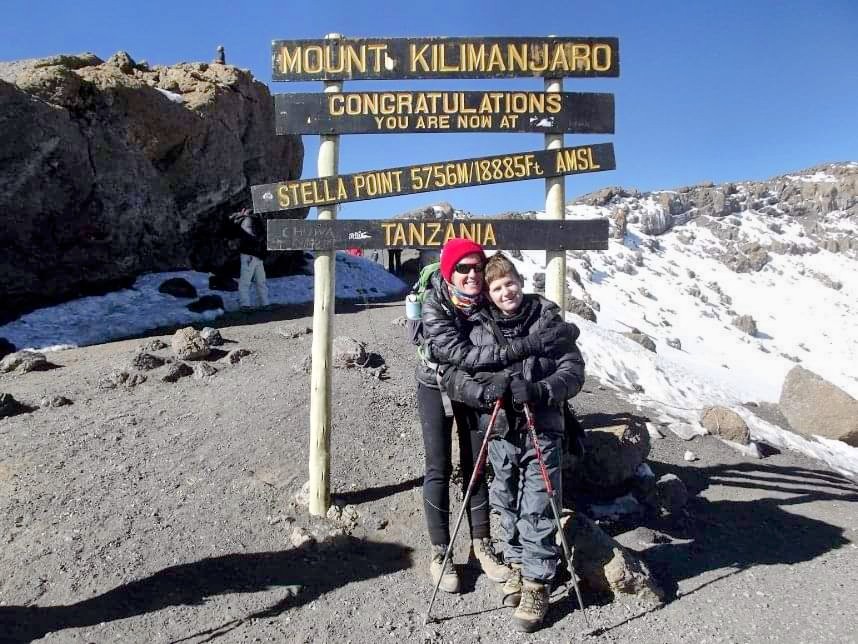
Sarah Kingdom is a mountain guide living in Zambia. Originally from Australia, Kingdom married a Zambian man and the couple had two sons, David and Thomas, who are now 23 and 21. Though she’s now climbed Africa’s highest peak, Mount Kilimanjaro, more times than she can count, that wasn’t always the case. In fact, on her very first time up the 19,340-foot mountain, she had a plus-one—David, who was 10 years old at the time.
That trip helped define who her oldest son would become (he is now an officer in the Australian Army), and it helped define the pair’s relationship, too. “I have a photo of David and I, cozy in our tent, halfway up Kilimanjaro, and even though it’s nearly 14 years ago, it’s still one of my favorite photos,” Kingdom says. “I can still remember, like it was yesterday, some of the things we talked about on that trip.”
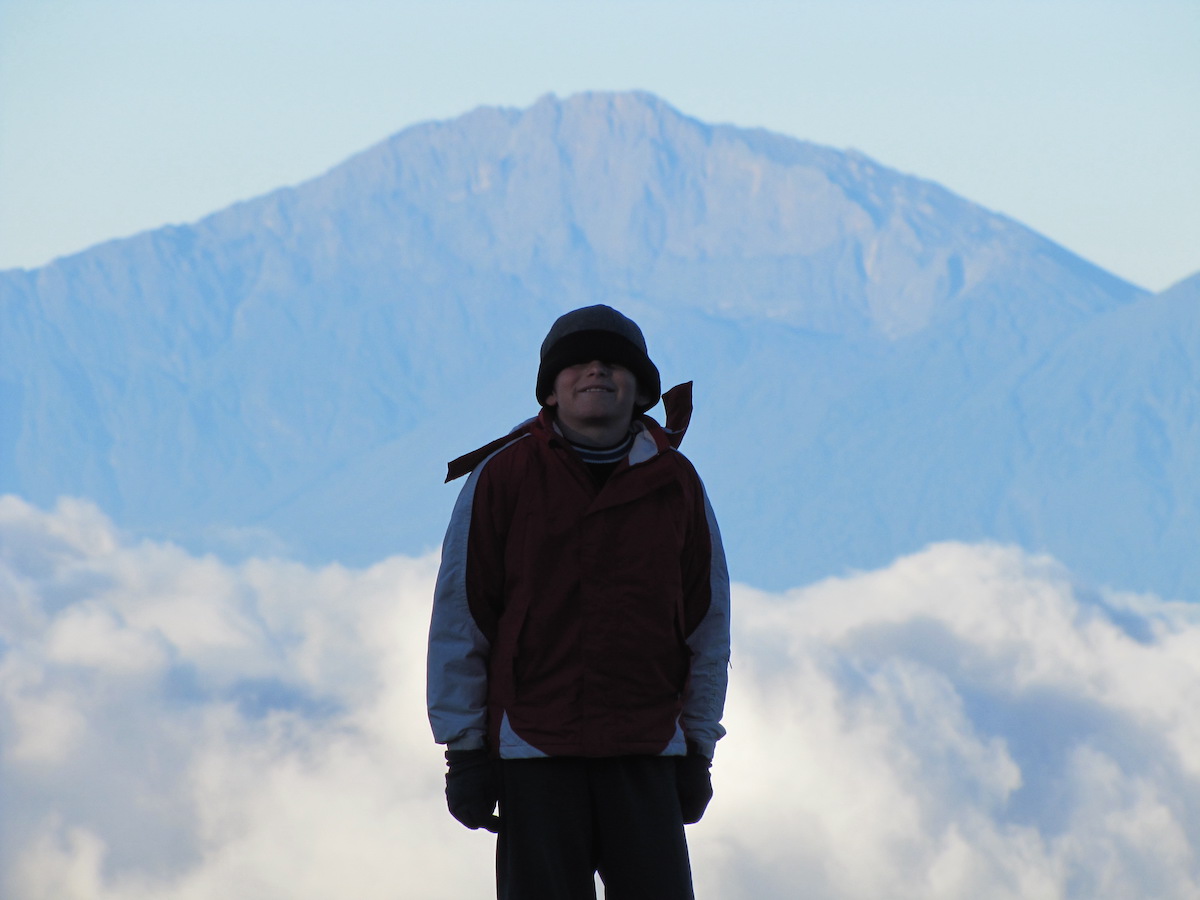
It was the start of something beautiful for the whole family. Kingdom took her second son, Thomas, up Kilimanjaro for the first time when he was 13 years old, alongside a group of about 10 kids from a school in Zambia. She says through that trek, she saw her youngest gain tenacity and a willingness “to push himself out of his comfort zone.”
At 16, David also climbed Europe’s highest mountain, Mt. Elbrus, with his mom, who was guiding a group of 10 adult climbers at the time. “To this day, [David] credits those early climbs for giving him the mental discipline to push through tough situations and to push himself physically,” Kingdom says. “And he still tells me that [the] trip we did together up Elbrus was one of the best ‘holidays’ he’s ever had.”
Today, Kingdom takes parents and their children on trekking expeditions, helping them summit peaks and unlock personal growth in the process. “It’s always important to tell kids that they are capable of getting to the top, always be positive, and don’t let them see you have any doubts,” she says. “Getting to the top of any mountain is 70% mental strength.”
While kids may not be most mountain guides’ ideal clientele, Kingdom says her most memorable and enjoyable climbs have been with kids—whether hers or someone else’s.
“I really enjoy helping kids challenge themselves and push themselves out of their comfort zones,” she says. “I think it’s important to encourage kids into the great outdoors . . . Climbing obviously has the physical benefits of fitness, but what is just as important is the mental skills it gives kids—discipline, bonding with other people, learning to be part of a team, experiencing other cultures . . . and, most importantly, learning what they are capable of.”
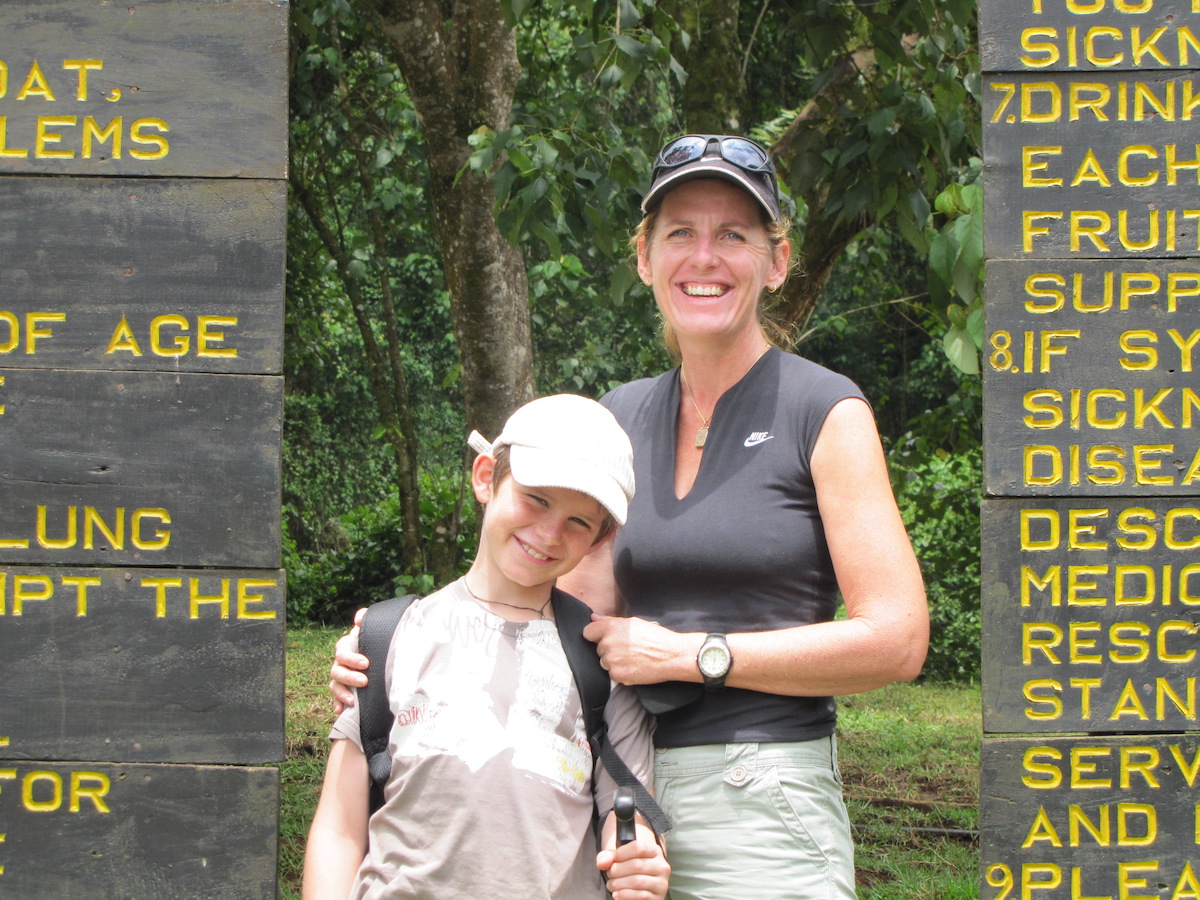
She’s seen firsthand the benefits of an outdoor adventure for families. “I recently took a group of German parents and their teenage sons up Kilimanjaro,” Kingdom says. “I found it really interesting to see how the parent/son dynamic changed throughout the trip. As the parents began to see just what their sons were capable of, they definitely started treating them as if they were older . . . [and] it gave the parents and kids a real bonding experience.”
Kingdom says kids are often much more capable than most parents give them credit for. “As parents, we are sometimes guilty of wanting to wrap our kids in cotton wool and overprotect them,” she says. “Give your kids the opportunity to challenge themselves. They’ll probably surprise you—and themselves—with just how capable they are.”
Will Hike for Ice Cream
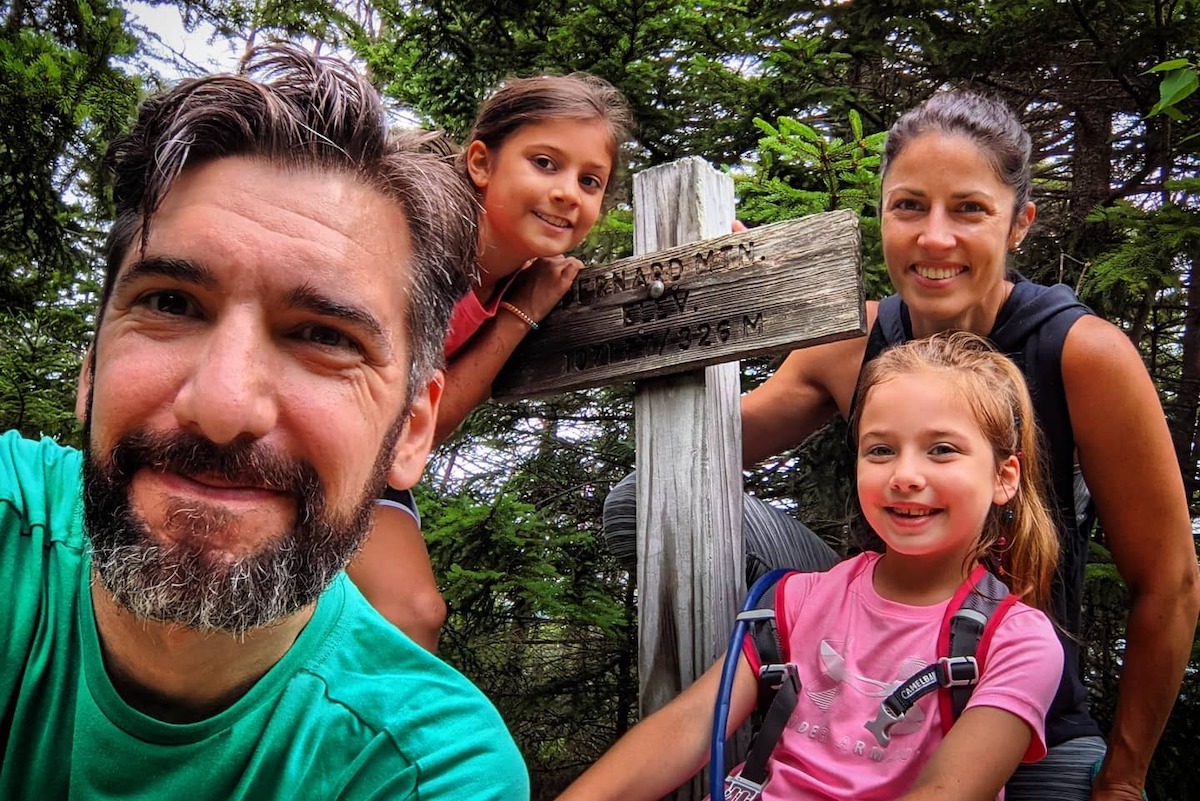
David Blanchard has been going up to Acadia National Park for just about every summer of his life. His parents took him there as a baby, and it became the Massachusetts family’s “home away from home.” When Blanchard met his future wife, Jocelyn, in college, the couple started making the trek up to Maine together. When they had kids, it felt natural that the tradition would continue.
In 2016, when the Blanchards’ girls were just three and five years old, David and Jocelyn decided to set a family goal to hike every trail in Acadia. In 2023, they accomplished just that, with the exception of a few particularly dangerous hikes, which David completed with a friend.
“Seven years ago we set the goal, we got a map from one of the hiking outfitter shops in town for Acadia, and we got a red Sharpie and we just would mark all the trails that we did the old-fashioned way,” Blanchard says. “And then I would keep track of mileage and everything like that on my phone or with Strava or AllTrails, and we just kept picking away at it year after year.”
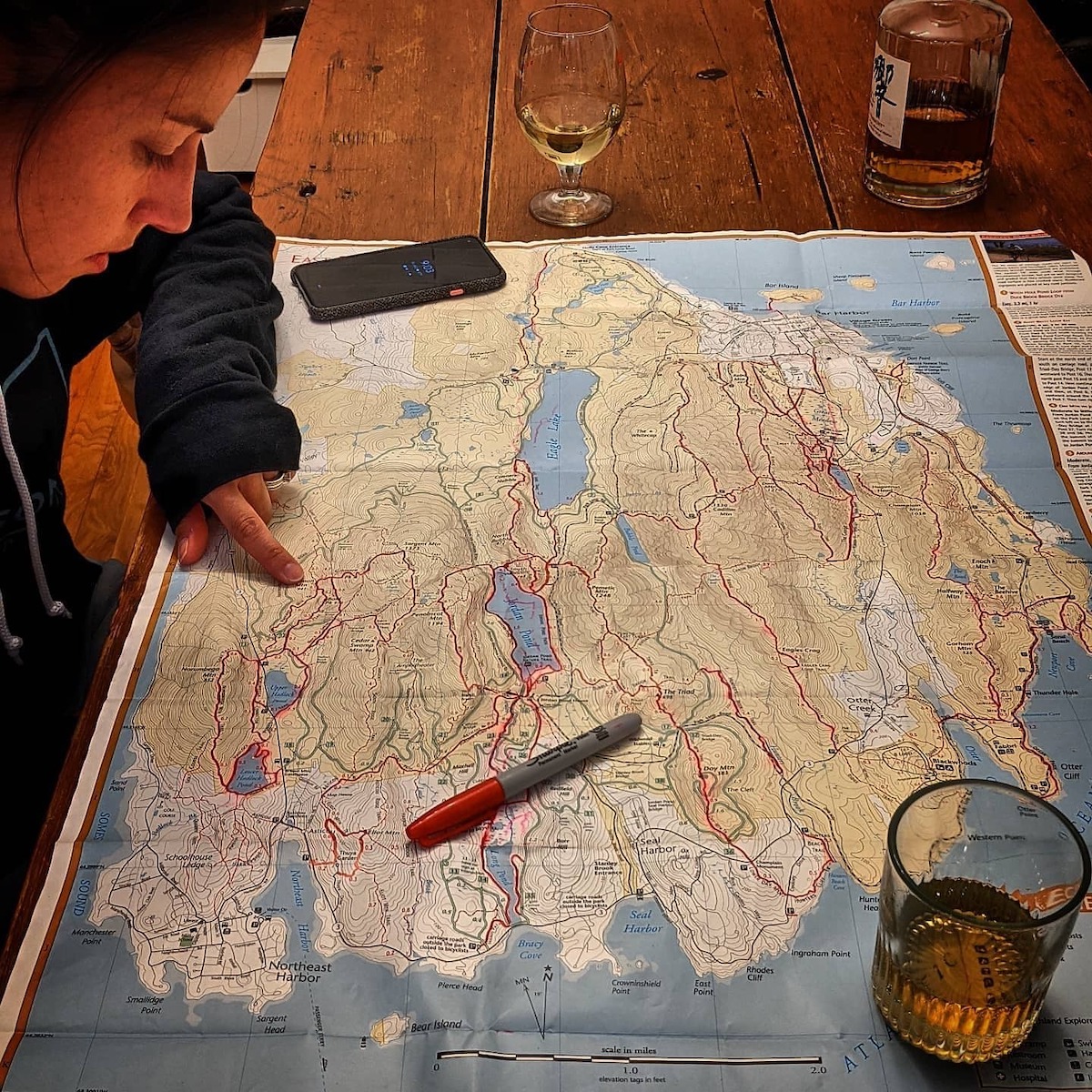
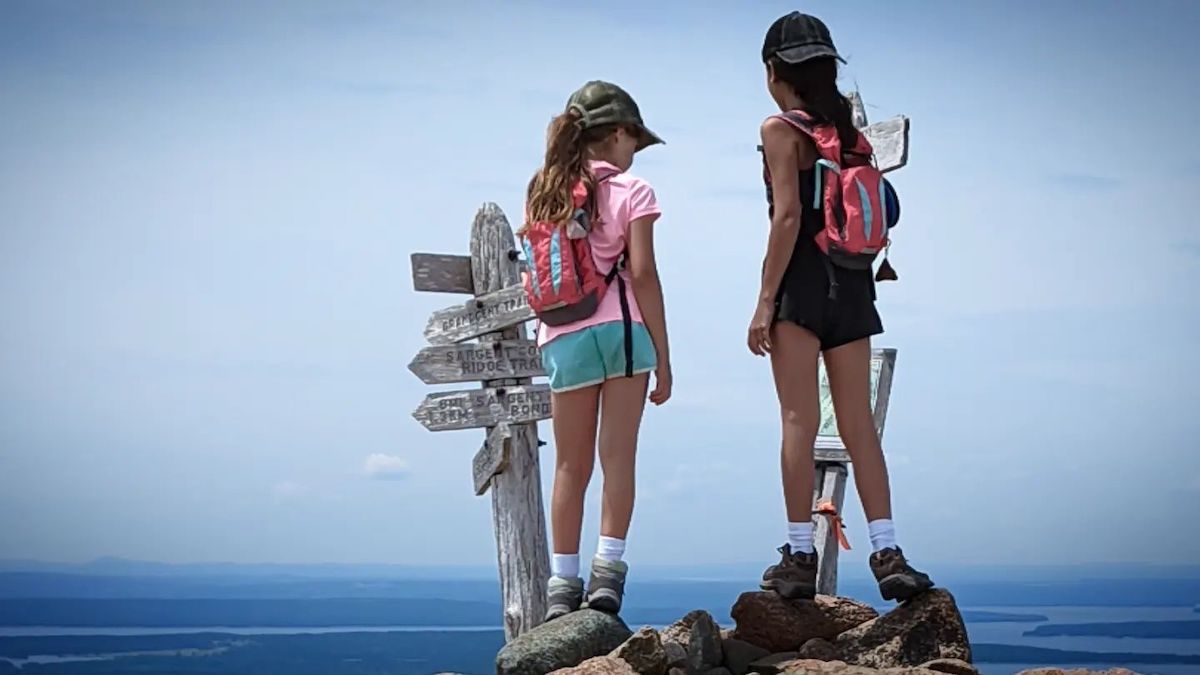
The Blanchards’ girls, Avery and Natalie, initially rode along on these family hikes in a backpack and a Baby Bjorn carrier, but they certainly don’t anymore. The two have grown up hiking in Acadia, and Blanchard says it’s been an absolute delight, even when it hasn’t.
“I hope that when I’m dead and gone, they’ll look back on the time they had with their mom and dad trekking through the woods of Acadia and those will be fond memories,” he says. “I hope that it’s a tradition that carries on and they do it with their kids. Maybe they do Acadia, maybe they find their own park, but I hope that as much as they might complain ‘we’re going hiking again,’ day after day, they’re excited, they walk up ahead of us on the trail, holding hands. They’re singing songs and they’re making memories whether they realize it or not. And what better place to do that than in the great outdoors?”
Blanchard says the time spent with his kids on the trails has led to some deep conversations and opened up a space for them all to talk about life, especially now that the girls are approaching their preteen years. For Blanchard in particular, who was diagnosed with early-onset Parkinson’s Disease in his 30s, this time and these memories with his family are nothing short of sacred.
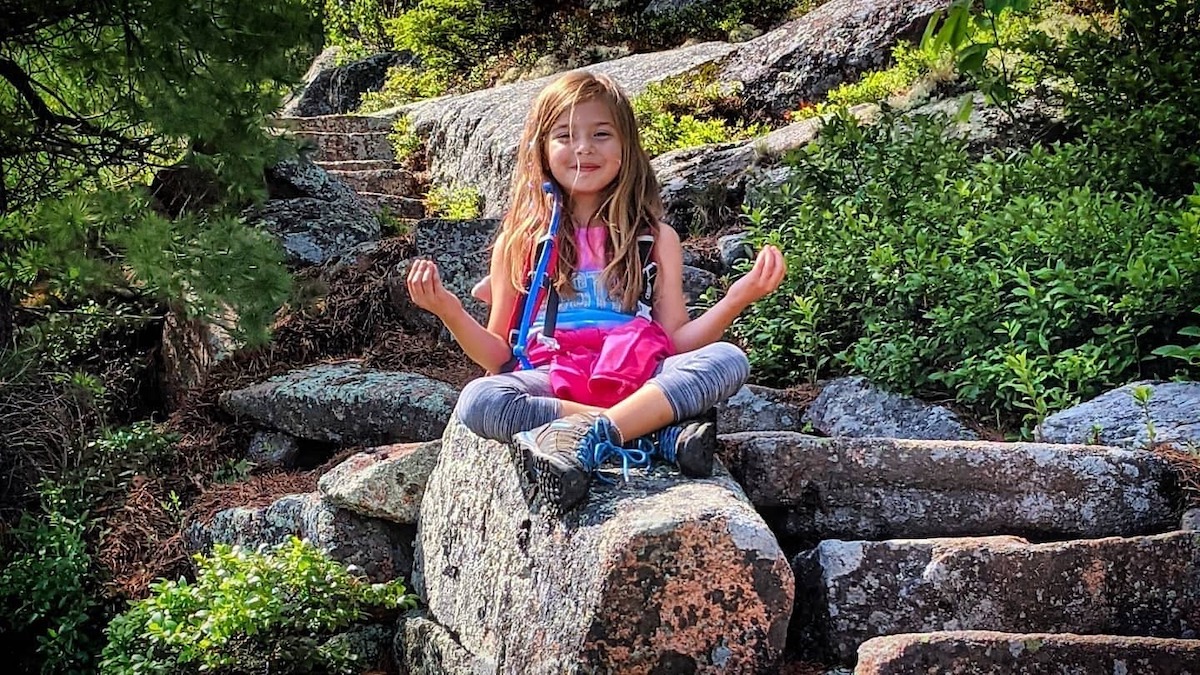
“[That diagnosis] has changed my perspective on a lot in life,” Blanchard explains. “It definitely instilled a seize the day, carpe diem mentality of ‘I’m young, and I don’t know how much time I‘ve got to do things, but there’s no time like the present, so let’s go and let’s hike every trail in Acadia.’”
As to how exactly the Blanchards got their kids up every morning at 7:30 AM for hike after hike in Acadia National Park, Blanchard unabashedly states: bribery. Like many parents, Blanchard knows the power of a good snack, and, at the end of the day—or rather, at the end of a long hike—he is not afraid to wield that power.
“Ice cream is always the great final achievement,” he laughs. “So we got ice cream pretty much after every hike, which the kids were totally okay with.”
Be Prepared and Have Fun
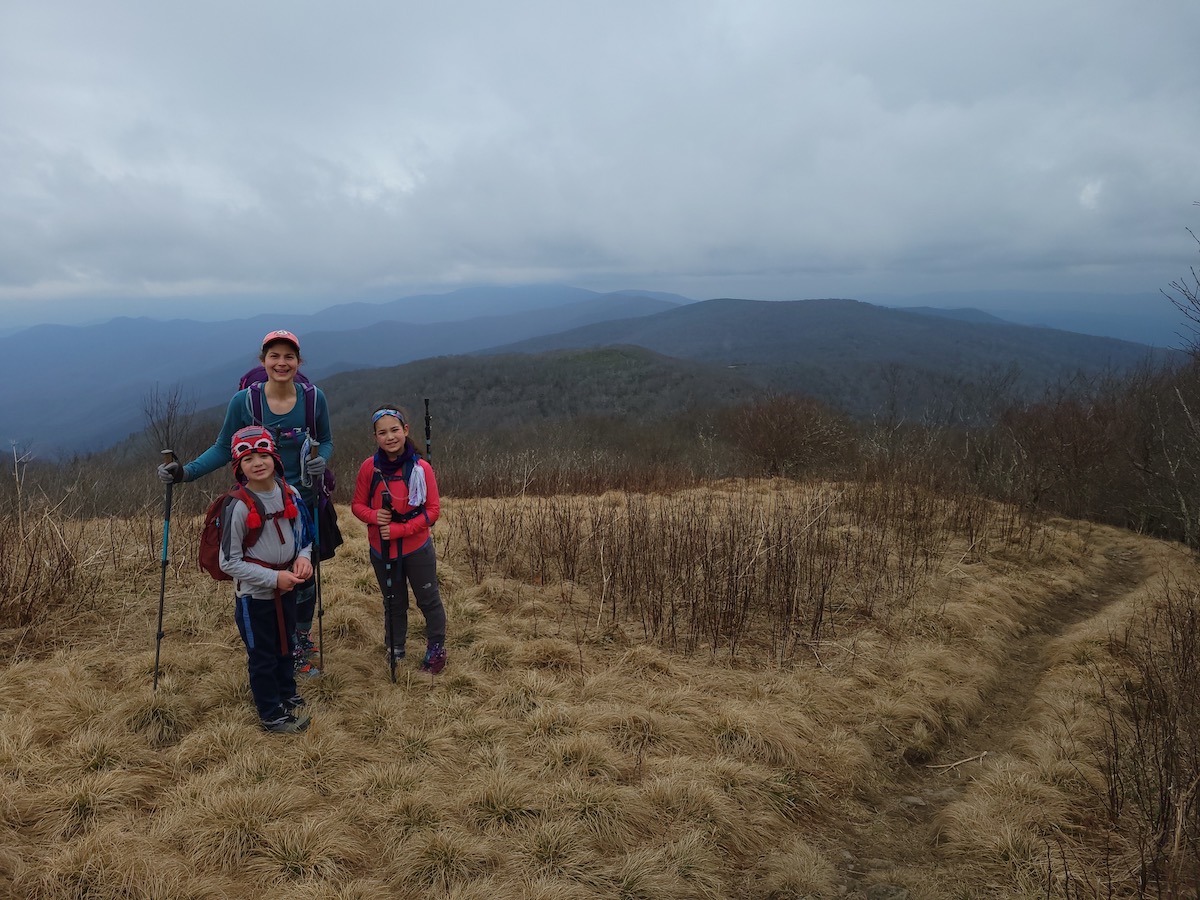
For many of the same years the Blanchards were hiking in Acadia, Jennifer Stoneking-Stewart and her kids, Elizabeth and Landon, were hiking Great Smoky Mountains National Park, slowly checking trails off their bucket list until every single one was checked. The nine and 10 year olds were inducted into the Smoky Mountains 900 Miler Club in October 2023 after officially completing all the trails in the park.
Stoneking-Stewart says the family started tracking their miles when her youngest was about 3.5 years old (although he was hiking much earlier, as soon as he could walk). The kids recalled some of their favorite memories of their many hikes, including water crossings and, in Landon’s case, any time a trail intersected with interesting history of the area, like along the Lakeshore Trail.
Stoneking-Stewart says exploring the kids’ unique interests on the trails, not being afraid to stop to explore these interests, and keeping it fun are all keys to hiking long distances with kids. She also encourages other parents to respect their kids’ limits while finding ways to push those limits.
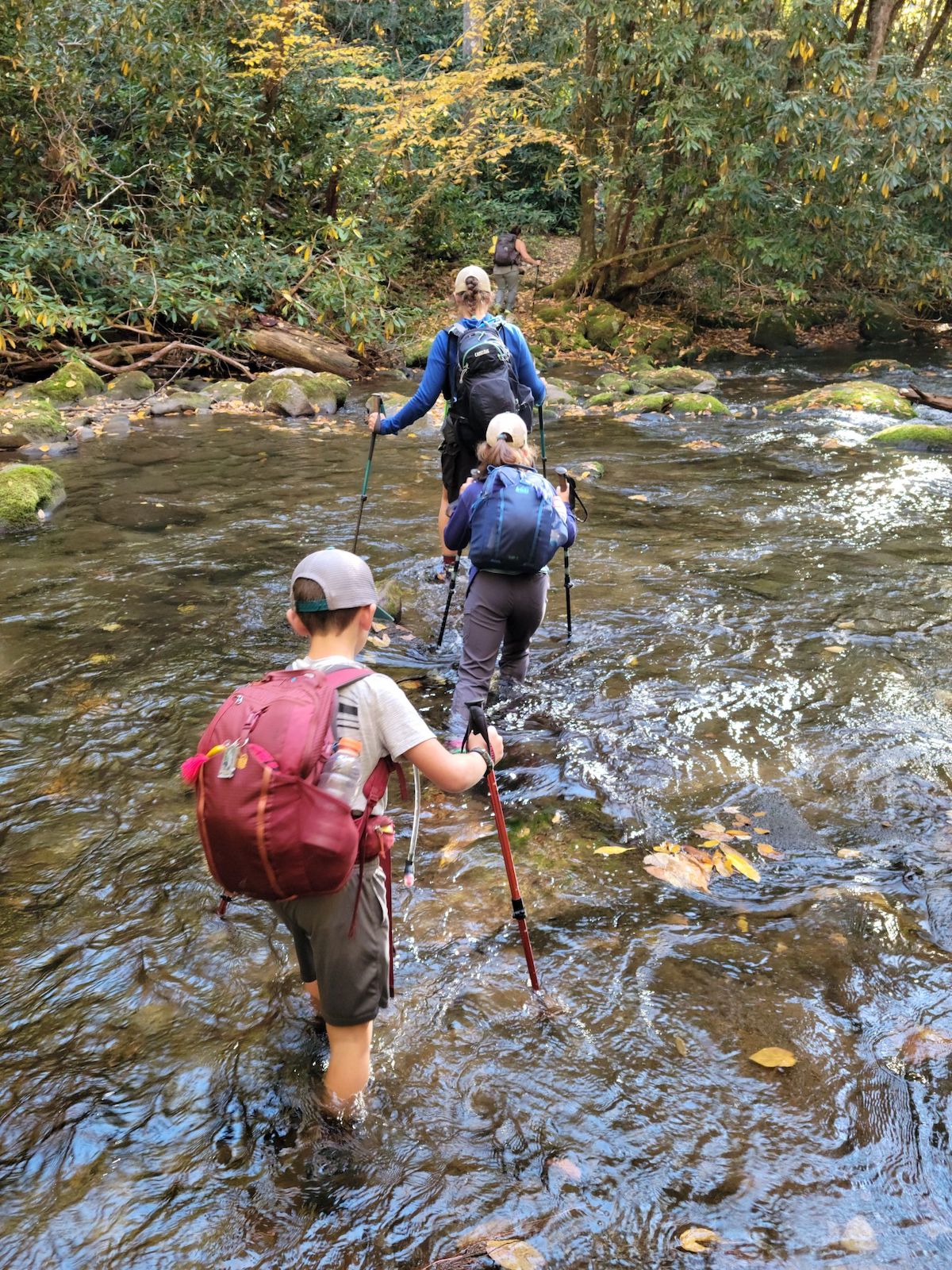
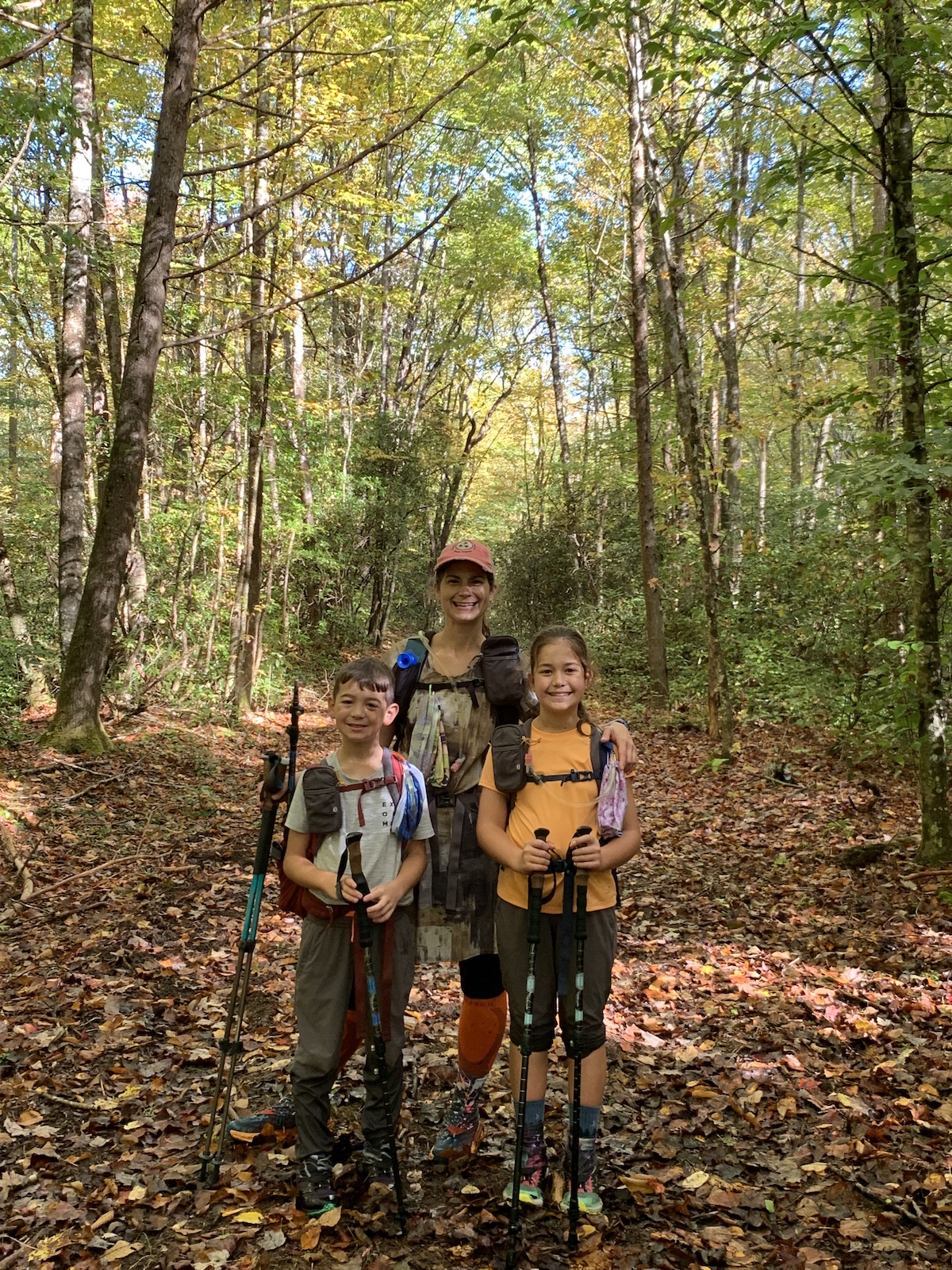
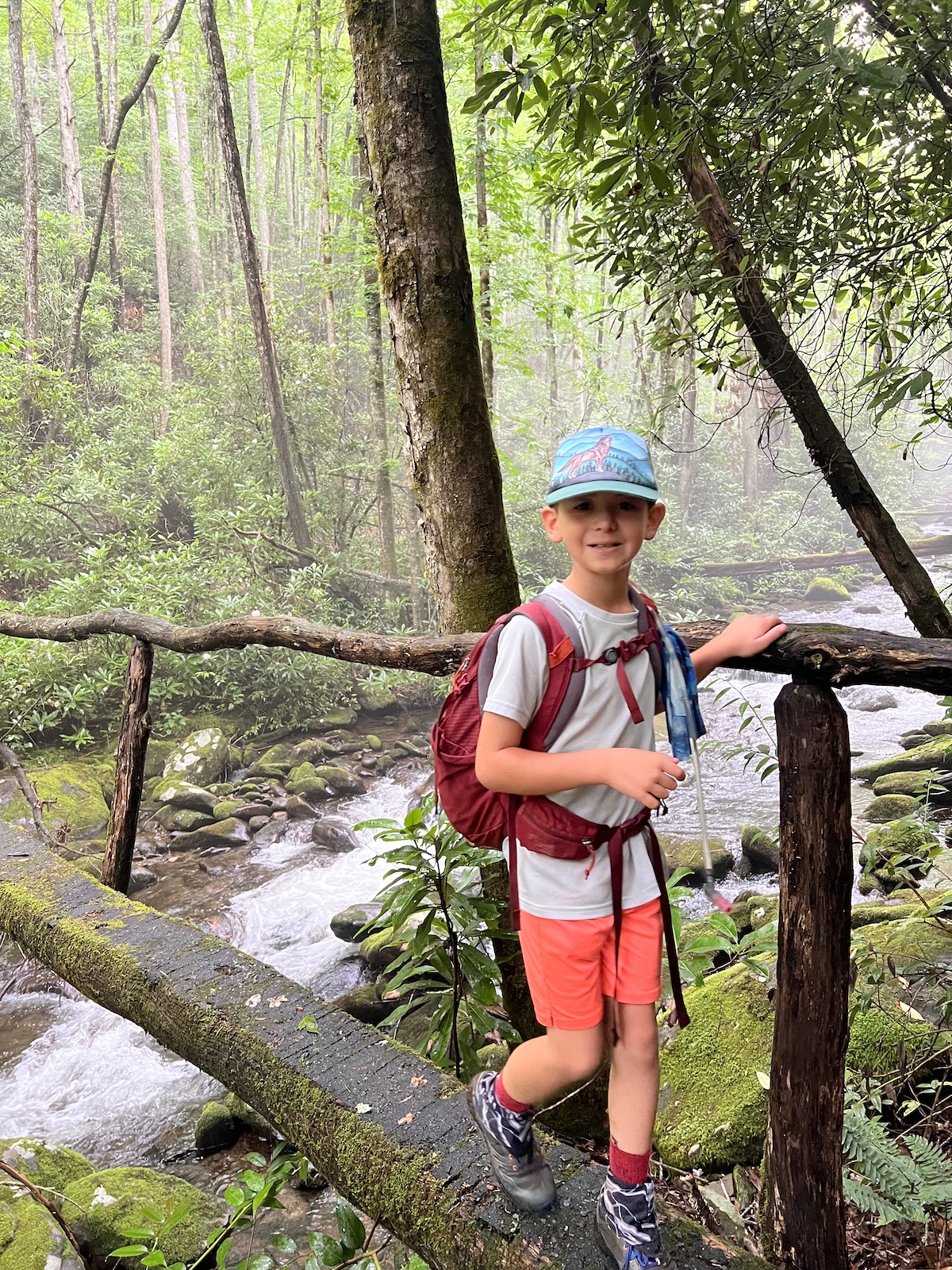
“One of the biggest and most important things for these guys has been knowing what their limits are, knowing how to challenge their limits, and knowing when they’re getting to the point where it’s like, ‘Okay, let’s pause. Let’s take a break. We need a snack. Let’s play a game,’” she says. “If we’re kind of getting into a little funk as we’re walking along and we need something to lift our spirits, are we gonna sing a song? Because we’ve done a lot of that.”
Stoneking-Stewart says it’s helpful to start when the kids are young, but no matter what age they are when you start, be consistent about going out into nature. If outdoor adventure is a culture you want to cultivate in your family, then you should be getting out regularly and establishing it as a way the family can have fun and grow together. In the Stewart family, they’ve found it is also helpful to set the standard that the kids always carry their own packs and walk on their own two legs (with exceptions, of course).
Stoneking-Stewart believes in the power of preparation. “Do your research as a parent . . . [not just] your route; I mean do all the research you can about the conditions that you’re going to find—the grade, if you’re going to have any kind of water crossings or conditions—like, this trail is really narrow or it’s got cables that you’ve got to be aware of—and then just talk to people who have done the trails recently so they can provide further trail updates.”
Despite being an avid hiker in all conditions, Stoneking-Stewart says as a parent, you need to know when to call it if conditions become too hazardous. This doesn’t mean shielding kids from all hardships on the trail; it just means you’re watching for situations or conditions that cross the line and become unsafe.
Speaking about her family’s journey, she adds: “I hope that this experience has taught [the kids] mental perseverance. The importance of being able to not give up when something is hard—even when the trail gets hard, we have to keep walking, because that’s the only way we’re going to finish [and] get to the car.”
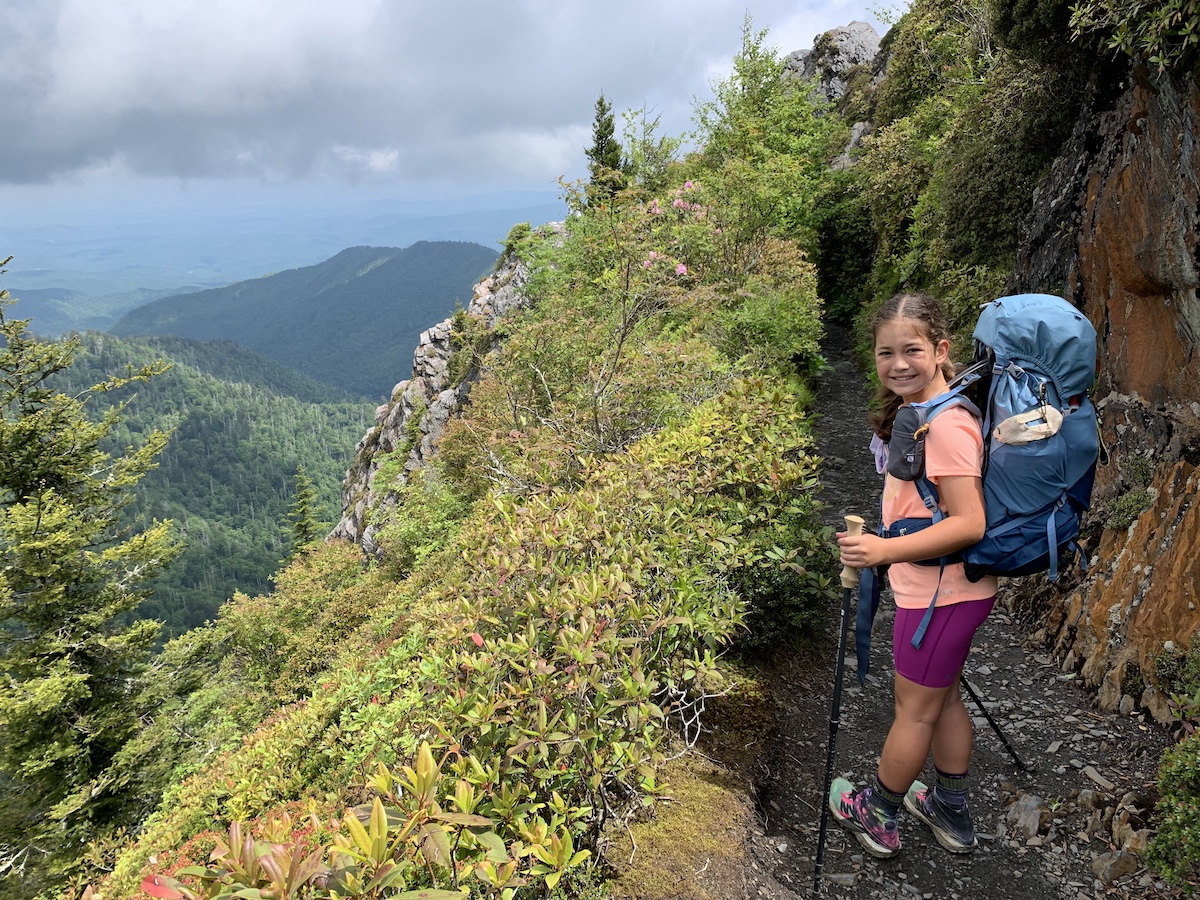
“There are things that they’re going to encounter that are going to be really hard [in life], and they’re going to have to figure out how to keep pushing, even though it’s hard, with that knowledge that eventually they’re going to get to the end and have pride in that accomplishment.”
In fact, as all three parents have learned through their families’ adventures, it’s more about making memories and having fun than the actual accomplishments . . . although those are nice too. None of them ignore the not-so-fun bits or pretend it wasn’t hard. Rather, they embrace the rough patches as part of the fun—and certainly as part of the learning experience.
Stoneking-Stewart says on their family hikes, they frequently stop to take pictures, look for insects, smell flowers, find rocks, and collect sticks. This made those 900+ miles in the Smokies take way longer, but it also made those miles way more memorable.
For 10-year-old Elizabeth Stewart, the most important tip for kids who want to get out and have a great outdoor adventure with their family is to “just have fun.” And nine-year-old Landon Stewart’s advice? Bring lots of snacks, especially peanut M&Ms.
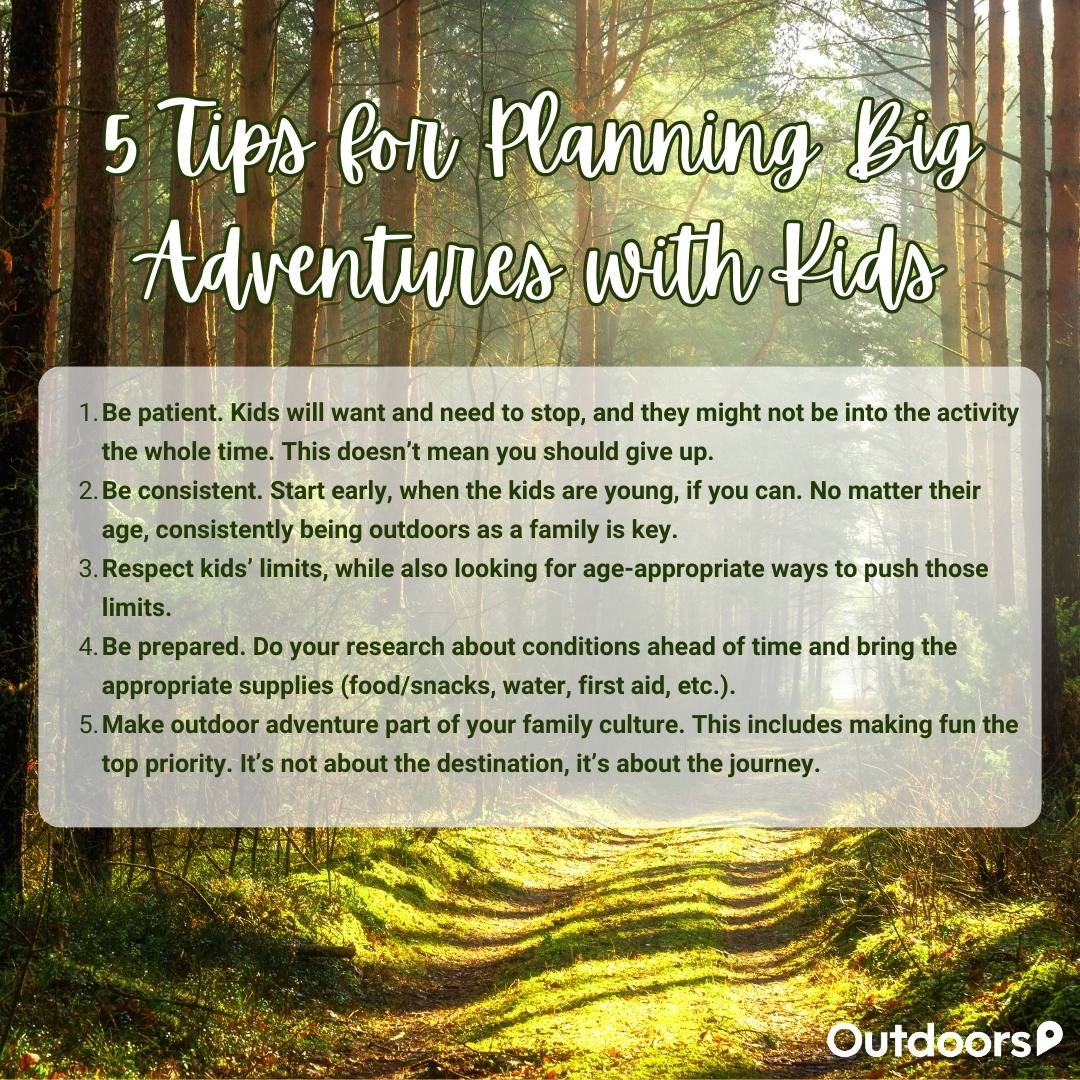
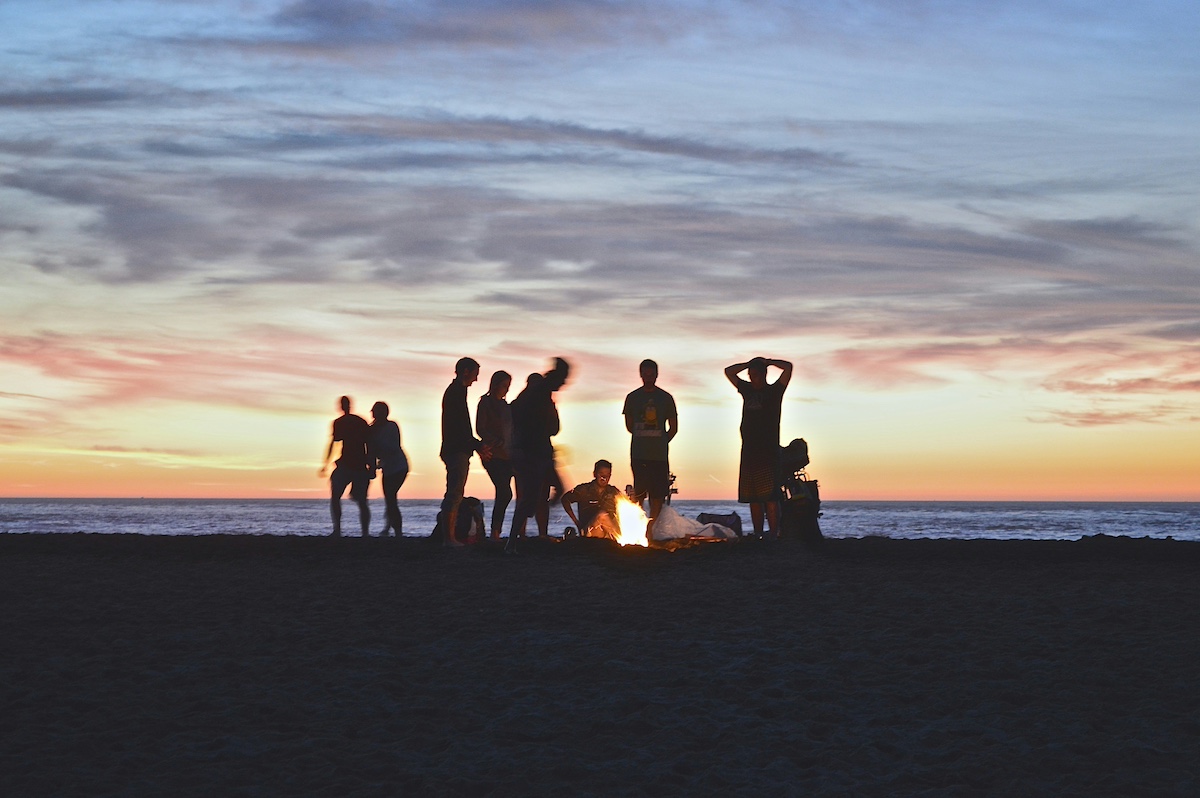
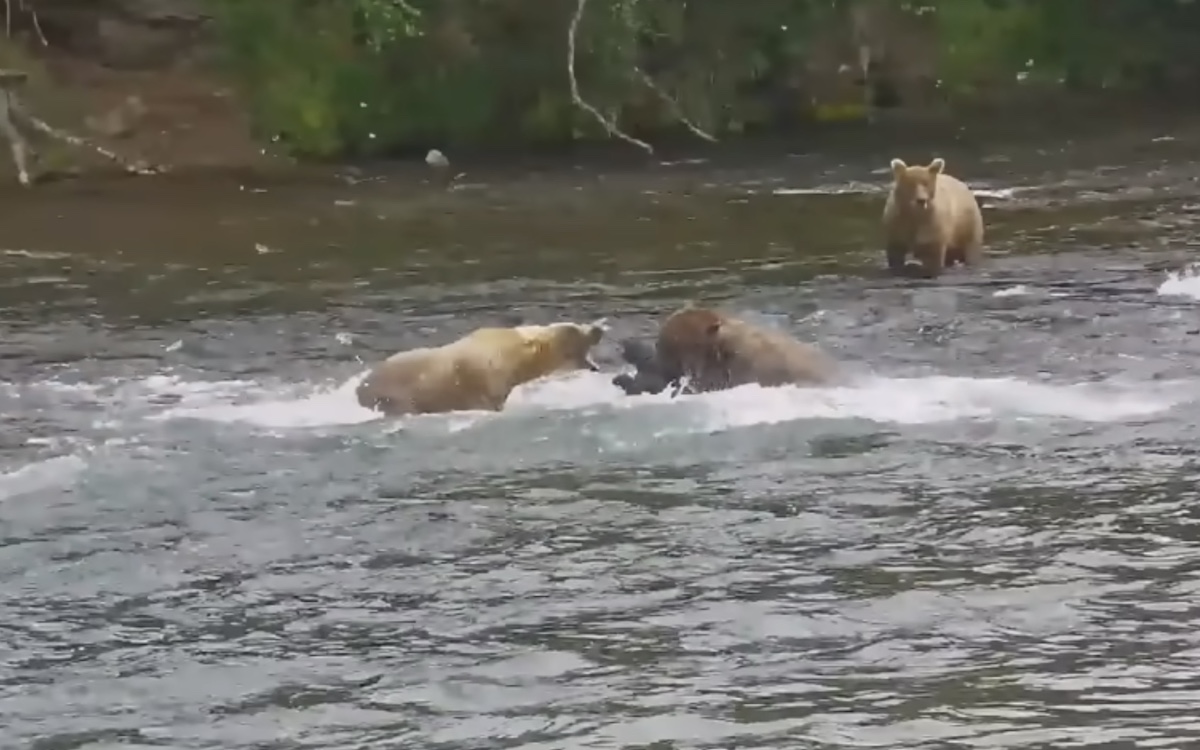
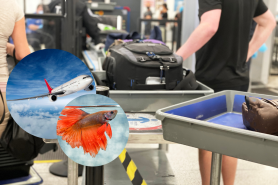
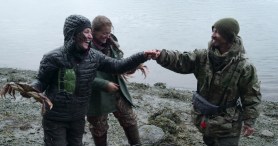

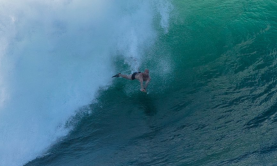

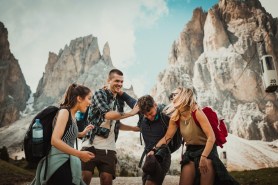
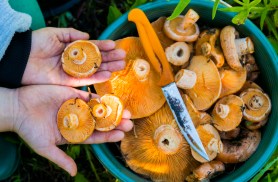

So inspirational!! Love it!